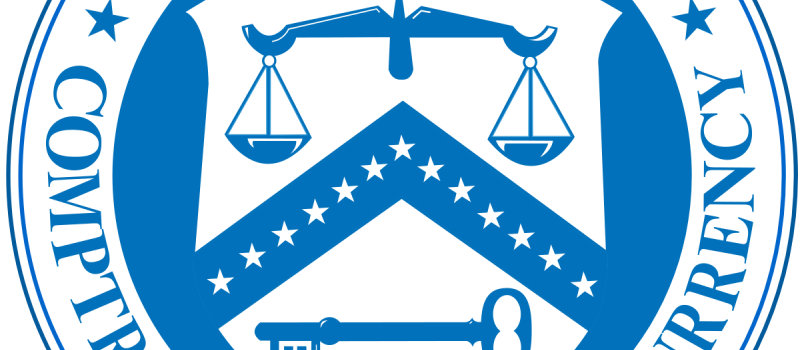Regulatory Trumps
posted by Collin Canright on March 20, 2017 - 9:37am

The U.S. Office of the Comptroller of the Currency made its next move to create federal charters for FinTech firms, with publication last week of a draft licensing manual for applicants. "Consistent with previous OCC statements and papers, the manual makes clear that the special-purpose charters will be subject to all applicable banking laws and regulations. It also clarifies that the special-purpose charters will not authorize deposit-taking," the American Bankers Association reports, with the satisfaction of a lobbying job done well.
Meanwhile, the new head of the Commodity Futures Trading Commission (CFTC) instructed his staff to examine the role the agency can play in promoting FinTech in the multi-trillion-dollar derivatives markets it oversees. “We must open wider our CFTC agency doors and regulatory minds to benefit from fintech innovation,” said J. Christopher Giancarlo, President Donald Trump’s pick to become permanent head of the CFTC, speaking at a Futures Industry Association conference in Florida. “The CFTC must be a leader in adopting the ‘do no harm’ approach to financial technology similar to the U.S. approach to the early internet.”
For insights on Mr. Giancarlo's talk and the FIA audience's highly positive reaction, see the report by FinTech Rising friend Chuck Mackie, written for the MavenWave consultancy. The report also covers remarks on distributed ledger technology by Digital Asset Holdings CEO Blythe Masters.
Boston Fed team puts mobile payments to the test
Consumers are becoming more acquainted with mobile and digital wallets, but they’re largely unfamiliar with how they work and have not tried very hard to use these mobile payment tools. In a new paper published by the Federal Reserve of Boston, the Fed lays out key factors for increasing mobile payments adoption. Indeed, a survey by PYMNTS.com shows that two and a half years after the much-vaunted launch of Apple Pay, consumers still prefer to dip and swipe cards, with "95% of consumers still by and large preferring to pay the way they always have." The report includes all the mobile payment stats you could want.
How to deliver real-time payments in an open API environment
Consumers expect payments to be made in real-time and within a few clicks. Damian Richardson, Head of Innovation and Strategic Initiatives at the Royal Bank of Scotland, said during a FIS and Finextra webinar that banks “should start with the customer and work backwards (PDF).” With European banks required to provide open APIs to meet PSD2 regulations (PDF), banks have an opportunity to develop realitime payment capabilities at the same time. "Open APIs and instant payments are often treated as distinct topics with separate budgets and business owners. But, as a bank it usually makes sense to run these projects as one, with one owner and one budget," the FIS webinar report states.
Financial wellness in the workplace
In addition to mental health, financial wellness is becoming more important to employers, so employer-sponsored financial wellness programs are gaining ground. Business owners and managers know that these things have an impact on workplace productivity. “At the end of the day, salary is the primary source of cash flow for the vast majority of workers,” writes Jessica Ellerm for Daily FinTech. “So managing this monthly flow of funds in a responsible way benefits both the employee and the employer.”
FinTech experts wanted, but not many people fit the bill
For job seekers in the FinTech space, there’s plenty of positions to be filled, but many financial services executives and IT leaders say there isn’t enough talent available for emerging technologies like blockchain. A survey of 200 financial executives and IT professionals found that more than 39% of respondents felt that blockchain technology talent is difficult to find, while 31% said that they are working with partners and vendors for supplements in talent, according to efinancialcareers.
THE BLOCKCHAIN WATCH
China bitcoin rules would require exchanges to verify clients’ identity
In the continuing saga of China's complex relationship with bitcoin, the People’s Bank of China opened up investigations in January at the country's three largest bitcoin exchanges, Huobi, OkCoin and BTCC, and delivered a stern warning last month that bitcoin platforms risk being shut down if they evade rules on money laundering and foreign exchange, Chao Deng reported for The Wall Street Journal. The call echos other regulatory skepticism of governments around the world as to how to oversee cryptocurrencies.
Congress takes blockchain 101
The Congress has formed the Congressional Blockchain Caucus, signaling greater government interest in the emerging, complex technology. In a stunning move, the head of the caucus suggested that Congress should just listen rather than legislate, noting that other governments, like those in Singapore and the U.K., have safe zones where the technology can be tested without risk of unintended regulatory violations. Mike Orcutt has the story in MIT's Technology Review.
Blockchain misreads could set banks up mistakes
Yes, blockchain is the popular topic in FinTech circles. But jumping in headfirst without taking the time to fully understand its faults and capabilities could set banks up for costly mishaps. The open-source blockchain products, like Hyperledger and Ethereum, have missing pieces, Jay Wack, president and CEO of the security software company Tecsec, told American Banker.
Blockchain needs to become technically boring
Watching blockchain technologists discuss the inner workings of the emerging technology is all fun and good, but when will there be products available for ordinary use, asks Daily FinTech. Enough with the dialogue. Let’s see the products. “The technical debates are pretty ugly. It is like watching Blue and Red states in America. There is no middle ground and a lot of dialogue of the deaf – if I shout louder maybe you will hear me and agree with me.”

